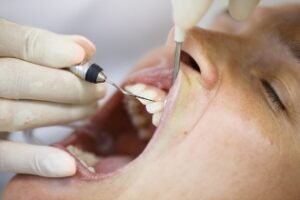RECOGNIZING THE RISK FACTORS FOR RECEDING GUMS
There are various risk factors associated with receding gums in Belmont, such as tobacco use and improper tooth brushing. Patients may also be surprised to find that bruxism, or teeth grinding, is another risk factor that can cause gums to recede. When patients are able to recognize these risk factors, then they can address and change their daily habits with the help of their dentist. Read on to learn more about the risk factors for receding gums.
Tobacco Use
Tobacco use—such as smoking cigarettes and chewing tobacco—is one of the most dangerous habits, because it can lead to lung cancer, oral cancer, an aged appearance, and severe dental issues. One of the most common dental issues associated with tobacco use is receding gums. Tobacco use increases patients’ risks of developing gum disease and causing the gums to degrade and recede. This recession can lead to increased infections in the gums, teeth, and root canals.
Poor Dental Hygiene
Poor dental hygiene consists of inconsistent and improper tooth brushing and flossing. If patients do not follow a healthy, daily dental regimen, then they are at a great risk of receding gums, gum disease, tooth decay, root canal infections, and discolored teeth. Gum recession is unattractive, but it can be managed with improved dental hygiene and routine visits to the dentist.
Improper Brushing
Patients may practice daily dental hygiene, but certain brushing techniques can also lead to gum recession. When patients brush their teeth and gums too hard or with a hard-bristled toothbrush, their gums will become damaged and recede. This can be managed by switching to a soft-bristled toothbrush and using softer brushing techniques.
Teeth Grinding
Receding gums are a little-known symptom of bruxism, or teeth grinding. When patients grind or clench their teeth, they are putting a great amount of force upon their teeth, gums, and jaw bones. The gums will begin to recede, which can cause tooth sensitivity and eventually expose the tooth roots.

